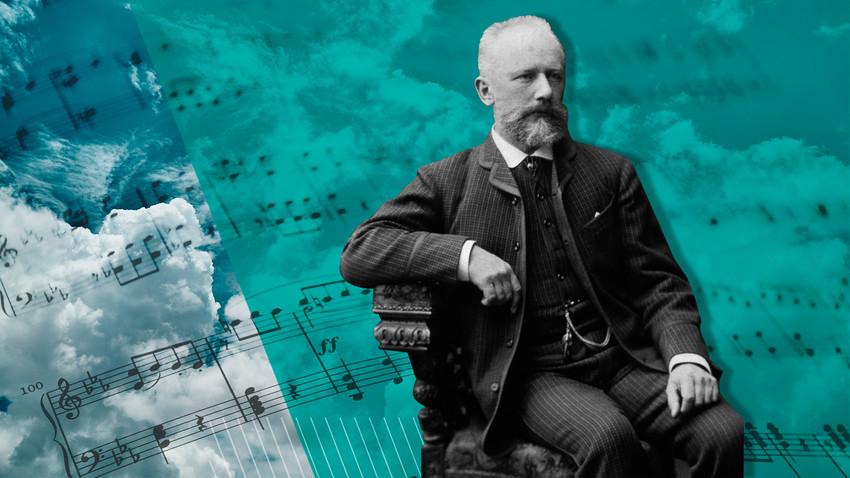Why Are Russian Composers Highly Regarded for Their Piano Works?

The history of Western music is deeply marked by the contributions of Russian Composers. From the Romantic era to the twentieth century, their piano works have left a profound impression on both performers and audiences. The piano became the perfect instrument for Russian Composers to express national identity, deep emotion, and technical brilliance. Works by Tchaikovsky, Rachmaninoff, Scriabin, Prokofiev, and Shostakovich stand as lasting monuments in the repertoire. To understand why Russian Composers are so highly regarded for their piano music, one must explore their cultural background, their stylistic innovations, and the universal appeal of their works.
The Cultural Foundations of Russian Piano Music
National Identity and Musical Expression
Russian Composers brought their national identity into piano writing. Folk melodies, Orthodox chant, and traditional rhythms shaped their music. These elements gave their works a distinctive voice, different from German, French, or Italian traditions. The piano became a vehicle for expressing the soul of the Russian people. Performers and audiences alike could hear echoes of their culture in the harmonies and themes.
The Role of the Romantic Tradition
The Romantic era provided fertile ground for Russian Composers. Piano music was already central in Europe thanks to Chopin and Liszt. Russian Composers embraced this tradition but infused it with their own colors. Tchaikovsky’s piano works, though sometimes overshadowed by his symphonies, showed lyrical beauty and heartfelt melancholy. They expanded the emotional range of the Romantic piano tradition.
Technical Brilliance and Virtuosity
Rachmaninoff’s Contribution
No discussion of Russian piano music can ignore Sergei Rachmaninoff. His piano concertos and solo works are considered cornerstones of the repertoire. Rachmaninoff’s music combines technical challenges with deep expression. His large hand span allowed him to create dense chords and sweeping arpeggios. His Preludes and Études-tableaux are masterpieces of piano writing. They reveal why Russian Composers are associated with brilliance and emotional power.
The Virtuoso Tradition
Russian Composers often wrote music that tested the limits of pianists. Scriabin, for example, demanded precision and stamina in his sonatas and études. Prokofiev brought percussive energy, sharp rhythms, and unexpected harmonies into his piano works. These pieces became both daunting and rewarding for pianists. The virtuosic tradition ensured that Russian piano music would attract the best performers and thrill audiences.
Emotional Depth and Spiritual Vision
Scriabin’s Mystical World
Scriabin is one of the most fascinating Russian Composers for piano. His early works resembled Chopin, filled with lush harmony and lyricism. Later, however, he developed a mystical style, using complex harmonies and symbolic ideas. His piano sonatas explore themes of ecstasy, transcendence, and spiritual awakening. This made his music not only technically demanding but also philosophically rich.
The Lyrical Side of Russian Piano Writing
Rachmaninoff and Tchaikovsky are often remembered for their lyrical themes. Their piano music communicates human longing, sorrow, and joy. This emotional honesty is one of the reasons their works remain popular. The ability of Russian Composers to combine virtuosity with heartfelt emotion makes their piano works timeless.
Innovation and Modernism
Prokofiev’s Bold Language
Prokofiev introduced modernist elements into piano writing. His works often used biting dissonance, driving rhythms, and unexpected contrasts. The “Toccata” and his piano sonatas challenged traditional expectations of sound. Yet, beneath the modernist language, his music remained accessible. Audiences admired its energy and performers loved its unique character.
Shostakovich’s Subtle Voice
Shostakovich also contributed significantly to piano music. His preludes and fugues, inspired by Bach, offered a twentieth-century reinterpretation of counterpoint. They combined intellectual depth with expressive force. His works often carried hidden meanings, reflecting the tension of living under Soviet rule. In this way, his piano music offered both artistry and commentary on his times.
Why Audiences Connect with Russian Piano Works
Universal Themes
The piano works of Russian Composers appeal to audiences worldwide because they deal with universal themes. Love, sorrow, triumph, despair, and hope are expressed with clarity and intensity. The music does not remain confined to its Russian roots. Instead, it speaks to the human experience at large.
The Power of Melody
One of the hallmarks of Russian piano music is its melodic richness. Whether in the sweeping themes of Rachmaninoff or the folk-inspired motifs of Tchaikovsky, melody lies at the heart. These memorable tunes create an immediate connection with listeners. They ensure that the works remain beloved long after their first performance.
The Legacy of Russian Piano Music
Impact on Performers
Many of the greatest pianists in history have built their reputations on Russian piano music. Vladimir Horowitz, Sviatoslav Richter, and Evgeny Kissin became icons by interpreting these works. Their performances revealed the depth and power of the repertoire. The link between Russian Composers and virtuoso performers further solidified the prestige of these piano works.
Continuing Influence
Even today, Russian piano music continues to influence composers and performers. Modern pianists still turn to Rachmaninoff, Scriabin, Prokofiev, and Shostakovich as essential parts of their repertoire. Contemporary composers also draw inspiration from the innovations and emotional depth of these earlier masters.
Conclusion
Russian Composers are highly regarded for their piano works because they combined national identity, technical brilliance, emotional depth, and innovation. Their contributions expanded the possibilities of the piano and created works that continue to captivate audiences. From the lyrical themes of Tchaikovsky to the spiritual visions of Scriabin, from the sweeping concertos of Rachmaninoff to the modernist boldness of Prokofiev and Shostakovich, the tradition remains unmatched. The piano became the instrument through which Russian Composers expressed the heart of their culture and the spirit of humanity. Their music remains a bridge between past and present, proving that great art transcends time and place.
- Art
- Causes
- Crafts
- Dance
- Drinks
- Film
- Fitness
- Food
- Spellen
- Gardening
- Health
- Home
- Literature
- Music
- Networking
- Other
- Party
- Religion
- Shopping
- Sports
- Theater
- Wellness



